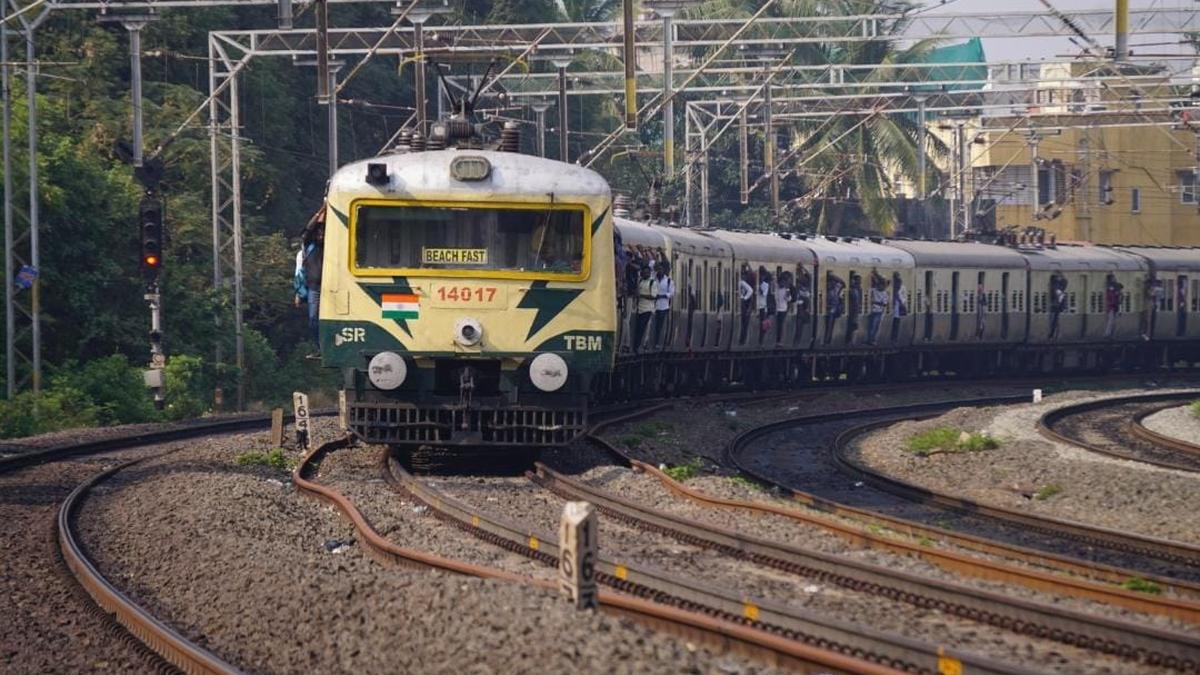Now Reading: Commuters Raise Concerns Over Train Delays Amid Fourth Line Expansion
-
01
Commuters Raise Concerns Over Train Delays Amid Fourth Line Expansion
Commuters Raise Concerns Over Train Delays Amid Fourth Line Expansion

Swift Summary
- Project Update: The fourth line between Chennai Beach and Egmore stations, commissioned by Southern Railway, has become functional to ease long-distance train traffic congestion in the city.
- Objective: This project addresses issues caused by having only three tracks previously, which constrained operations of mail/express trains and freight services to the Chennai and Kamarajar ports.
- Improved Efficiency for Long-Distance Trains: The fourth line enhances flexibility for mail, express, and freight trains towards the Gudur section and reduces operational burden at the Central railway station.
- Impact on Suburban Services:
– MRTS trains now operate at reduced intervals (previously 10-15 minutes; now 25 minutes).- cancellation of multi-sectoral suburban services (to Gummidipoondi, avadi, Arakkonam) due to track constraints following land acquisition challenges.
– Chintradipet station truncation has persisted for over a year and a half.
- Platform Adjustments: MRTS platform widths at Park and Fort stations have been reduced. Fast suburban trains are rerouted to slower lines beyond Egmore station due to structural changes.
- Commuter Concerns:
– Regular passengers from areas like Arakkonam, Perungalathur highlight hardships due to service cancellations or delays.
– Employees commuting via the Chengalpattu-Beach fast line express frustration about travel delays affecting timely workplace arrival.
Indian Opinion Analysis
The activation of the fourth railway line in Chennai represents progress toward easing long-distance train congestion while benefiting freight operations crucial for trade hubs like Chennai port. However, this growth underscores an often-seen trade-off between enhancing national infrastructure projects and accommodating local commuter needs.
The disruption faced by suburban rail users is concerning as it directly impacts daily mobility patterns within urban areas-a critical factor in metropolitan lifestyles. Reduced frequency of MRTS services combined with canceled multi-sectoral routes diminishes accessibility for commuters traveling across key neighborhoods like Gummidipoondi or Perungalathur.
Infrastructural initiatives must balance inter-city transit improvements with intra-city commutes’ seamless operation since both contribute equally to societal well-being. policymakers could seek solutions such as optimizing existing scheduling or augmenting transit options locally while accommodating larger infrastructural demands.
Continued dialog among authorities could led toward minimizing commuter challenges while maintaining progress on broader connectivity enhancements essential for India’s economic growth trajectory.
Read more: Source
























